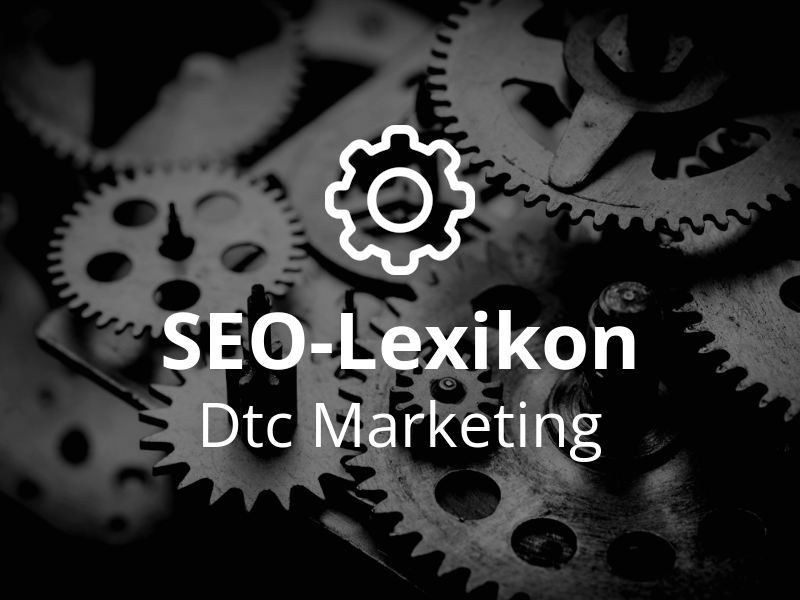What is the D2C model?
The Direct-to-Consumer (D2C) model refers to a sales strategy in which manufacturers sell their products directly to end customers without using intermediaries. This approach allows companies to build a more direct relationship with their customers and collect valuable data about their preferences and purchasing behavior. This leads to improved product development and can contribute to cost savings, as margins do not have to be shared with sales intermediaries.
Key features of the D2C model
Companies that use the D2C model are increasingly using digital platforms, in particular their own online stores, to maintain direct contact with customers. These platforms make it possible to build a personalized relationship with buyers and obtain direct feedback. Well-known examples of successful direct sales models include established companies such as Vorwerk and Tupperware. In the E-commerce the D2C model primarily offers small companies new opportunities by facilitating market access in a cost-efficient manner, regardless of location. As a result, the model is being adopted by more and more manufacturers under the pressure of globalization and increasing competition.
Advantages and challenges of direct-to-consumer
The Direct-to-consumer model offers considerable Advantagesprimarily through the elimination of intermediaries. This leads to cost reductions, as additional trading levels and the associated margins are eliminated. Companies also gain direct access to Unfiltered customer datawhich provide a deeper insight into consumer trends and preferences. This data not only supports the optimization of the product range, but also promotes more intensive customer loyalty. In addition, direct contact with customers enables a quick and targeted response to feedback, which accelerates and improves product development.
However, the D2C model also brings Challenges with it. Small companies in particular are faced with the difficulty of achieving sufficient brand awareness and Range to achieve. Direct sales require a certain level of technical *know-how*, which is not always available, and can be costly to implement. Furthermore, customer expectations in the D2C sector are often higher in terms of service quality and personalization of offers. Companies must therefore invest in the development of customized marketing strategies and in Customer Engagement in order to be successful in a competitive market environment. These challenges require careful planning and a clear strategic direction.
Marketing strategies in the direct-to-consumer context
In the context of the direct-to-consumer model, specific Marketing strategies is crucial for maximizing direct customer loyalty and increasing brand awareness. One of the key instruments is the use of targeted advertising and Social mediato reach the target groups precisely. Platforms like Google Ads and social media partnerships can be used to target specific customer groups and increase visibility.
Innovative approaches to sales promotion
Companies are also increasingly relying on Content marketing und Suchmaschinenoptimierung (SEO), um so den organischen Traffic on their online presences. Pop-up stores are also a popular means of increasing market awareness and promoting direct customer contact. In addition Crowdfunding as a method of funding and product development to get an early response from the buying community. Companies in the D2C sector have more flexibility in the Pricing and the development of personalized offers, which strengthens customer loyalty. The use of interactive and appealing packaging and a focus on value-oriented action can further increase customer trust and loyalty.
Role of digital marketing and customer engagement
At Direct-to-consumer context plays the digital marketing a decisive role by enabling brands to Customer experiences significantly. Through precise data analysis, customer behavior can be accurately tracked and used to develop targeted marketing measures. Digital marketing allows companies not only to better measure the effectiveness of their campaigns, but also to optimize their Communication strategies to continuously optimize our processes.
Strategies for improved customer engagement
Effective Customer Engagement is a key to the Success in the D2C model. It not only promotes the Customer loyaltybut also helps to increase sales by strengthening customer loyalty. Personalized experiences and offers, tailored to the specific needs and preferences of customers, are of central importance here. Customers who feel valued and experience personalized communication tend to stay loyal for longer and make additional purchases. In addition, technological simplification and clearly controlled supply chains support direct interaction with customers, which increases margins for companies by improving operational efficiency.
Success strategies for the implementation of D2C marketing
For the successful Implementation of D2C marketing it is crucial to Customer Journey effectively and optimize it continuously. Increasing brand awareness is the top priority and can be achieved efficiently through strategically placed marketing initiatives. The privileged treatment of loyal customers plays a central role here in order to increase Service quality and strengthen customer loyalty. Companies should aim to offer added value and personalize the entire customer experience in order to stand out from the competition.
Proven tactics for customer retention
An effective means of reducing customer loss (churn prevention) is the use of personalized experiences. Tailor-made offers and exclusive benefits based on the analysis of customer data will increase customer loyalty. Customer loyalty strengthened. Marketing initiatives such as shopping basket expansions and User Generated Content (UGC) can additionally promote customer loyalty. UGC makes it possible to use authentic content from customers to present the brand more credibly. This not only creates a sense of community, but also encourages others to interact and purchase. The combination of these strategies contributes significantly to creating value for both customers and companies in the direct-to-consumer sector.
« Back to Glossary Index

